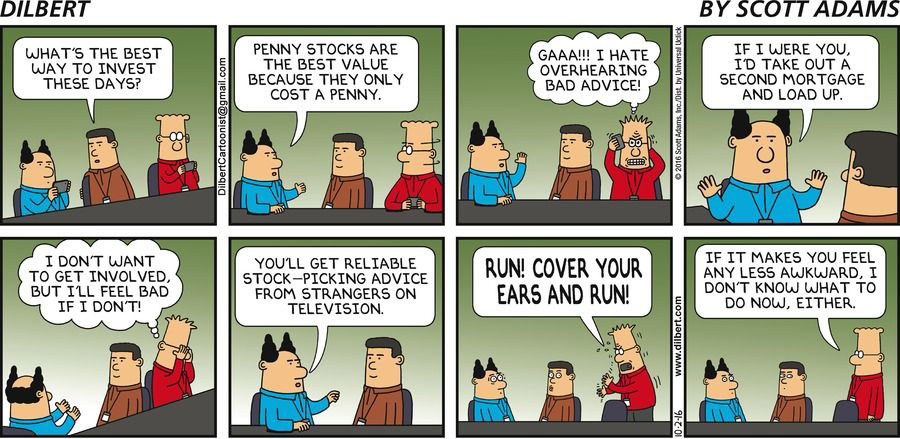 In a decision rendered on August 7, 2019 in G.R. No. 18849, Camp John Hay Development Corporation v. Charter Chemical and Coating Corporation, the Supreme Court (SC) ruled that the dispute resolution clause in the parties’ subsequent contracts, stipulating that “[a]ll actions involving this Contract shall be instituted only in the proper courts of Pasig City, Metro Manila to the exclusion of all other courts,” did not supersede the arbitration clause in their earlier contract.
In a decision rendered on August 7, 2019 in G.R. No. 18849, Camp John Hay Development Corporation v. Charter Chemical and Coating Corporation, the Supreme Court (SC) ruled that the dispute resolution clause in the parties’ subsequent contracts, stipulating that “[a]ll actions involving this Contract shall be instituted only in the proper courts of Pasig City, Metro Manila to the exclusion of all other courts,” did not supersede the arbitration clause in their earlier contract.
The case started when Charter Chemical and Coating Corporation (Charter Chemical) filed on June 12, 2008 with the Construction Industry Arbitration Commission (CIAC) a request for arbitration, seeking payment from Camp John Hay Development Corporation (Camp John Hay) of the monetary value of two condominium units that Camp John Hay undertook to turn over to Charter Chemical as payment for its painting works pursuant to their Contractor’s Agreement. Camp John Hay executed the contracts to sell (CTS) for the units but failed to deliver them to Charter Chemical due to construction delay. In its Final Award dated March 30, 2009, the CIAC ordered Camp John Hay to pay the monetary value of the units.
On appeal, Camp John Hay argued that the CIAC did not have jurisdiction over the dispute because the arbitration clause in the Contractor’s Agreement was superseded by the dispute resolution clause in the subsequent CTS. The developer also argued that the CTS removed the parties’ dispute from the coverage of the Construction Industry Arbitration Law (Exec. Order No. 1008, s. 1985), which dealt with construction contracts. The Court of Appeals (CA) affirmed the CIAC’s jurisdiction.
On appeal to the SC, the Tribunal agreed with the CA that the CTS, which contained a different dispute resolution clause, did not supersede the arbitration clause in the Contractor’s Agreement. The Tribunal held that the CTS were merely devices to facilitate the transfer of ownership of the two condominium units to Charter Chemical—an offshoot of a stipulation in the Contractor’s Agreement.
The High Court also rejected Camp John Hay’s claim that the CTS removed the parties’ dispute from the jurisdiction of the CIAC. The SC held that under the Construction Industry Arbitration Law, the CIAC’s jurisdiction covered payment and default by the employer or contractor. The Tribunal said that the dispute involving the CTS boiled down to the issue of payment of the two condominium units for services rendered by the contractor, Charter Chemical. (Irish Jhade G. Alimpolos)
Party empowerment in mediation and mediated settlements
Mediation recognizes the principle of empowerment of the parties-disputants by leaving it to them to settle and the terms of the settlement they will agree on. Hence, in managing the mediation process, unless the parties agree otherwise, a mediator may not “freely” give suggestions, opinions, and recommendations that may unduly influence the parties in the resolution of their disputes.
In saying this, I consider the following mediation principles, among others:
• Empowerment of the parties. The decision to settle and the terms of the settlement should come from the parties. Most importantly, the parties also need to have a sense of “ownership” of the outcome of the mediation, since (a) it is their dispute in the first place and they are solely responsible for its resolution, and (b) they will also be the ones to abide by and implement whatever terms of settlement they may agree on.
• Mediator’s impartiality and lack of bias. If the mediator is freely allowed to give their “views, proposals, or evaluations” of the dispute, they might unduly influence the parties in arriving at a decision to settle and the terms of their settlement. The mediator’s role is simply to “manage” the mediation process. The mediator is not even supposed to “judge” who between the parties is right or wrong or who between them has a “better or weaker” position. It is not also the mediator’s concern whether the parties settle their dispute. That is for parties the to decide.

I happened to attend the training workshop on mediation of intellectual property disputes conducted by the Intellectual Property Office of the Philippines-World Intellectual Property Organization (IPOPHL-WIPO) last May 7 and 8, 2014 where speakers from the WIPO Arbitration and Mediation Center lectured on mediation.
One of the lectures touched on facilitative and evaluative mediation, and mentioned “mediator’s proposals.” So I posed to them the following question:
In evaluative mediation, where the mediator can give his views, proposals, suggestions, and evaluation of the merits of the dispute, what will prevent a “biased” mediator from influencing one party in favor of the other?
Peter Moody, a U.K. lawyer, ADR practitioner, and one of the presentors during the workshop, acknowledged in response that evaluative mediation was indeed a “less pure” form of mediation compared to facilitative mediation.
• The parties’ implementation of the settlement agreement is just as important as the process of arriving at the settlement agreement. Based on studies, there is a higher likelihood of party compliance if the parties, on their own, arrived at the decision to settle and agreed on the terms of settlement by themselves, compared to a situation where the parties were influenced into arriving at such decisions.
The mediation process does not end at that point where the parties execute a mediated settlement agreement. It extends to the situation where the parties by themselves manage, implement and abide by such agreement.
In his book The Global Negotiator, Jeswald Salacuse, Dean of the Fletcher School of Law and Diplomacy, shared a wonderful insight: “The challenge of business negotiations is not just ‘getting to Yes’ but also staying there.”
I believe this also applies to mediation, which is simply facilitated negotiation. How the parties by themselves manage, implement, and abide by their agreement is equally important, and understanding this principle is fundamental in mediation. Simply put, there is a better chance of party compliance if the parties have a sense of “ownership” over the outcome of the process. Certainly, parties have to go past “Yes” in mediation.
Some institutions such as the International Chamber of Commerce (ICC) offer safeguards by restraining and cautioning mediators from giving recommendations unless requested by all the parties to the mediation. They give premium to the principle of party autonomy, which is essentially the authority of the parties to decide on the settlement process affecting their dispute and ultimately its outcome.
Paragraphs 40 & 41 of the ICC Mediation Guidance Notes, which is a companion to the ICC Mediation Rules, state:
Recommended terms of settlement
Without imposing terms of settlement on the parties, the mediator may, if requested by all parties, recommend terms of settlement for their consideration.
Combining mediation with other settlement procedures
The parties and the mediator may agree that in certain circumstances (e.g. where a settlement agreement has not been arrived at after a certain period of time) the parties may jointly request the mediator to provide a non-binding evaluation of the merits of the dispute in order to assist them in reaching a negotiated settlement agreement.” (Italics supplied)
Rule 9 (“Conduct of Mediation”) of the Philippine Dispute Resolution Center, Inc. (PDRCI) Mediation Rules also states:
d. Upon the request of both parties, the mediator may make a non-binding evaluation of the proposals for settlement, but not on the merits of the parties’ respective positions.
e. Whenever necessary and provided the parties agree and assume the cost, the mediator may seek expert advice to facilitate the settlement or evaluate the proposals for settlement.
Be that as it may, advocates of facilitative mediation may not agree with the evaluative approach. It is not uncommon for a mediator to express disappointment when they are unable to see the parties through a settlement of the dispute they attempted to mediate.
We also know of court-annexed mediation where mediators’ fees are “success based,” meaning, they get paid only if there is a settlement between the parties. In the latter case, will success-based mediators’ fees not motivate the mediators into unduly influencing the disputing parties to enter into a settlement? As a corollary, is a mediated settlement agreement the only measure of a successful mediation process?
On this note, I would like to share an insight on the importance and virtue of party empowerment in mediation expressed by Robert Mnookin, chair of the Program on Negotiation of the Harvard Law School. In Bargaining With the Devil, When to Negotiate, When to Fight, he recounted mediating a dispute between feuding siblings, ironically named Hardings, over their family inheritance. He said:
A common occupational hazard for mediators is getting hooked into taking responsibility for finding a solution. It’s all too easy for the mediator to believe that his value as a mediator depends on whether a deal is made. And many parties are all too eager to dump this burden in the mediator’s lap. “Aren’t we paying you to come up with a solution?” they often say—or at least imply.
I have to constantly remind myself that this is the parties’ dispute not mine. My responsibility is to help the parties better understand each other and their predicament, and then fashion their own solution. Parties seeking mediation are often in situations that put them under a lot of pressure, and the mediator shouldn’t add to that pressure by pushing them toward settlement. … But in family conflicts I am reluctant to do that, because I think it’s so important for the parties to learn to do business together. If a neutral makes the decision, they have no opportunity to learn. (at 237–9)
All told, party empowerment is fundamental in mediation.
